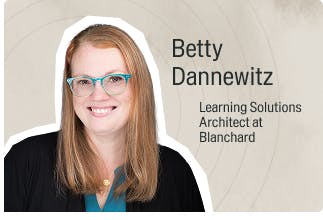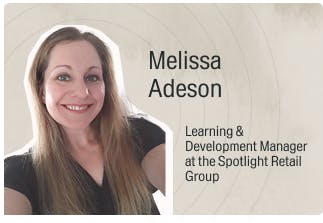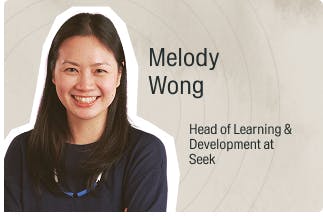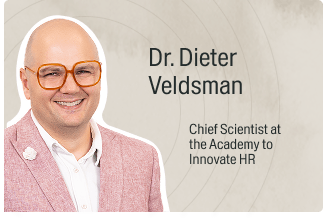AI use cases for personalizing learning and measuring impact with Filtered’s Co-Founder and CEO Marc Zao-Sanders
About the guest
Marc Zao-Sanders is the Founder and CEO of Filtered.com, a tech company that leverages AI to enhance learning and upskill individuals. With a degree in Maths & Philosophy from Oxford, he has founded two social enterprises supporting disadvantaged youth in their education and career paths. Marc is a regular contributor to Harvard Business Review and other publications, focusing on AI, learning, and timeboxing. He recently keynoted the Harvard Business Review AI Summit in São Paulo and has relocated to the South of Spain with his wife, three children, and pets.
Transcript
Dan: Welcome to L&D in 20, your go to resource for all things workplace learning brought to you by Go1. I'm your host, Dan Hayward, Chief Customer Officer and industry veteran. Today, we're going to be speaking with Marc Zao-Sanders, co-founder and CEO of Filtered, a learning tech company that helps organizations get the best return on their L&D spend.
Marc is heavily involved in shaping the future of educational technology, focusing on personalized learning experiences, powered by intelligent algorithms. He's also the author of Time Boxing, the power of doing one thing at a time, Marc, welcome to the show.
Marc: Dan, great to be here. Thanks for having me.
Looking forward to this.
Dan: know that Filtered technology has recently conducted a survey around kind of generative AI in the wild. I'd be super interested to hear kind of what was some of the, the most common and real world applications that you uncovered.
Marc: Sure. Well, what we wanted to do with the research was to get to real gritty. You know what people were actually doing, not the pontificating commentators of which there are just, you know, there's so many so that approach, which was unusual, really resonated with people and actually the graphic made it into the print edition of Harvard Business Review.
And what the research said, well, number one, I mean, there are a hundred use cases and for each use case, there are several stories that we've dug up mostly from Reddit. The number one use case really resonated for me personally, because that's how I use large language models myself, mostly is idea generation.
So you're thinking about something, you're writing something, maybe it's a business plan and you're looking for some ideas to get you going. And bring that momentum to you so you can get going. So, I do that a lot and that was cited by the greatest number of Reddit users. So that was number one. I think number two was therapy as a companion, which, you know, makes, it raises some eyebrows and makes some people laugh.
I mean, personally, I think it's very interesting because there are some aspects of using an anonymous non-human LLM that are actually an advantage versus a human; a human adult to speak to. So, I think, you know, working out in general where generative AI has an advantage through not being human is a really interesting take and that's a great example.
And because you and I work in L&D, it's nice also to see that positions eight and nine, there were two learning entries. So, the first was to enhance the learning experience in general. Yeah, so an example is I'm learning if I put in one like, um, talk to me, explain this concept as if I'm a 10 year old, that was very effective for someone who's not super experienced with the programming language.
And then number nine, which will be, you know, close to your, to Go1’s heart was personalizing the learning experience. So personalized learning. And of course, with the generative, with generative AI, the whole experience is personalized because you're putting in that prompt. It's very unlikely that exactly the same prompt would be put in by someone else.
So, so actually the whole experience is personalized anyway. And then, you know, very much from, it's very much from within our L&D world. If you think about pull versus push, so the whole experience here is pull and not push. So, so there's so much and, and obviously a lot of it, it touches on education in some way.
Excel formula was, was another one. And one that I quite liked was making complaints. So very often something will happen in life, which is a, you know, inconvenience, you kind of feel like you should complain and move the world on in some way. And we'd also get some, you know, revenge on whoever's imposed on you in this way, but it just takes too long, it's too much hassle.
So some people, someone said, you know, their car was wrongly towed away. They made a complaint, they got some money back, justice was done, and the world was a better place. But I say, if anyone listening, watching, who is interested in this, there is a, there is an HBR article. I'm sure you guys have put the link out there.
There is the graphic that's in the magazine, but more importantly, or more usefully, I think, there is the, you know, there's the report. The report has all the actual use cases drawn out of the depths of Reddit. I mean, it was pretty painful, to be honest, going through tens of thousands of posts. But that's what we did.
We mined it. And, you know, for your viewing, reading pleasure.
Dan: Yeah, that's great. I think kind of just to double click on the companion piece, one of the, an interesting article I read recently was around AI as kind of like coach and mentor, so less of the companion, but more around. Okay. Yeah. I may not have a mentor in my workplace, but I can ask those sorts of questions.
Is, was that a use case or something that you came across or something close that came up?
Marc: Yeah, exactly for that use case. So, it was therapy companion. I mean, those are the two words that we use to describe the category. Anything that was mentor or, or coach fell into that as well. Actually, Sam Altman, about just over a year ago, so maybe three months after ChatGPT came out, he was asked on one of the podcasts here, what do you think is the best use case that you can see helping us imminently?
And he said, a learning mentor. So very close to what you're talking about there and very close to our industry. So I think this is one of the respects in which, of course, everyone's interested in what's going on here. But if you work in L&D, you really should be because if, you know, the CEO of one of the world's most influential companies, certainly in this area, is saying that, you know, learning mentor is one of the best use cases, you've got to have some ideas about how to be implementing that or experimenting with it or deciding not to experiment with it, but at least to be intentional and have thought about it.
Dan: Yeah, if you think about kind of the L&D professional right now, where are some of the ways that you think that they should be thinking about incorporating AI or some specific kind of like first step use cases if L&D teams are starting to kind of dip their toe in the water here?
Marc: I think there are two things to say here. One is that to first of all see your role as facilitating the, not so much the learning of your workforce, but the performance of the workforce and learning is a means to an end. And if you see it that way, and if you buy some of the studies that say that this technology can enhance the speed of knowledge workers by 25%, improve the quality by 40%, even if you dispute those numbers a lot.
Let's say you bring them both back down to, say, 10%. Makes you 10% quicker than 10% better at what you're doing. Well, you compound that for a start and you've got 21%, so that's a substantial shift. And that's already a lot lower than some of the studies. It's one of the Harvard studies in particular that came up with this 25, 40 percent quicker.
But anyway, if you discount substantially then, and you see L&D is being there to enhance performance. It really is incumbent on us to help the workforce make sooner, better, safe use of the technology. So, and to do that, I mean, what do you need? Well, you need safe experimentation. You need to help people find the use cases, and this is a nod back to the research that we did, but obviously it's not just our research, you know, there's lots of research into use cases, because the use cases won't necessarily just fall into people's laps.
So helping people find the use cases that really make sense, and getting that to happen, I think is the, is a, is a, you know, the best thing that L&D can do being. Also being really clear as well about what the risks are, what the policy at the company is. Some companies we speak to say, okay, we want our staff to do this, but we don't want them to do it at work because we don't want to have any of the risks.
So that kind of unofficial policy is experiment on your own time and there'll be benefits for you back at work. So there's a few ways of doing and also recognize that, you know, whatever your company is, however, sort of tech sort of progressive it is, even Microsoft. They don't have everyone just using generative AI all the time, be it in a copilot or some other version.
So every company is still sort of, you know, exploring and finding out where it's going to work best. I mean, just like, you know, that happened with the internet. It's been around for what, 30 years now, but it wasn't mainstream like the start people didn't know how they're going to best make use of it right from the start, and it's very similar.
I think with this new tech.
Dan: Yeah, obviously, a lot of the work you do is around personalization. So, can you just talk me through the listeners through kind of what do you see is the real benefits from a personalized learning and development experience? What? How would you frame that up? As, you know, as a benefit to the organization.
Marc: Well, if you think, okay, so personalized learning, I mean, certainly in our industry and our sorts of conversations, it's become a little bit of a cliche. And the problem with cliches is that then people are hearing it and using the term unthinkingly. So I just want to remind people that are listening, watching that what's the opposite of personalized.
The opposite personalized is where everyone does the same thing. So you have an entire cohort, an entire workforce doing a piece of learning or, you know, some sort of click next experience, which is what you get, actually, with mandatory learning and compliance. Personalized is different from that, because it is an individual finding or being led to some learning experience that they just wouldn't have otherwise, which expands their minds, um, really kindles their curiosity, makes them more confident in their role, these are really important things that I think we lose sight of a lot of the time in conversations in, in L&D.
So I think that's the main thing, that people will encounter experiences, think about things in ways that they haven't, and which aren't appropriate for the, the colleague next door or, you know, in their department, but with different interests. That said, I would say kind of, not against it, but just to sort of, you know, give a measured response.
It is hard to aggregate and benchmark the benefits of personalized learning over non personalized learning because, you know, if you're trying to help people with their curiosity and to satisfy their interests and intrigue, putting, um, you know, a dollar sign, pound sign, euro sign by that is very difficult.
I mean, arguably impossible. So I think as always in conversations with learning, um, getting to the ROI precisely in financial terms is, it is tough. Um, but the benefit of personalized learning is those, um, those magical learning experiences that happen to us all occasionally. And, um, and part I think of our job is to make those experiences happen more frequently.
Dan: That's great. And then can you kind of just talk to how you're seeing kind of the advent of AI or kind of those initial steps into AI really being able to offer more impactful and personalized learning?
Marc: We actually don't do it now, but we've, we were in that game for our personalized learning experience, intelligent learning recommendations.
Most providers will do something on this now. I know Go1 does, but it's become kind of more or common. I think the idea has caught on in learning because of, or largely because of social media. So with social media, we all are presented with a personalized feed, be it on LinkedIn or Instagram or X, whatever the platform, there's so much content out there.
How do you give an individual exactly the content that they want to need to see? And with social, it's very easy to measure success because it's just eyeballs on the page. That's it done. It's clicks with what we're doing is that. But it's then it's a little bit more, you know, to provide a worthwhile learning experience, you're staying with the user with the learner in some way over a number of weeks, months, I mean, maybe even years.
And some of that, you know, the positive impact of that is hard to capture. But that ultimately is what AI is, is, it's doing right now and doing for us in our industry is getting people to the right content through, you know, these intelligent learning experiences. Of course, with generative AI, it's, there's additional functionality.
I mean, you can generate new content. So there's so much content before and now there's, I mean, near infinite amount of content that can be generated. So I think we're going to have even we call it the content chaos. Problem of content chaos. That's the problem that we feel to the trying to you know, address.
That problem became, you know, 10x, 100x, 1000x more difficult. We're in, actually it's getting on for two years ago that OpenAI came out with ChatGPT. So yeah, that's, that's an additional benefit for power. So a capability that the industry now has, it's also a danger, but that's the case with all technology that, you know, it can be used wrongly, can be used to good effect.
That's, that's always been the case.
Dan: Yeah, so the ROI challenge has been around, you know, as long as I'm guessing both of us have been in the industry and wait, and long before that, but I think what I, yeah, what we see a lot more now, and I know that's something that you advocate is really around. Maybe it's not just tracking ROI, it's actually tracking progress against skills.
So, I think kind of one of the, one of the things that you see within social, I see with my, you know, my, my own kids, you know, my son taught himself to play guitar from, from YouTube. Yeah, it's very hard to be able to track kind of the ROI of hours sat there on his phone or on his, on his, on his laptop. But, I can see the level of, yeah, the skills that he's at.
And now it's, we're in a hybrid world where he has a, you know, has an instructor as well. So talk to me a little bit about how you think about kind of like tracking, measuring skills through, you know, through this, this interface. And as we move forward, forward with AI, some of the opportunities there.
Marc: Well, I think, okay, so with measuring learning, it's, it's very difficult.
I mean, one of the, we faced this ever since the beginning of Filtered, which is now some 15, 15 years ago. One of the things that we can do, which gives you some sort of an ROI to start off with is that because what we do is we run algorithms through content. Match them with skills. We say we get give a some advice to a client.
Okay, well, given the skills profile that you're after it, your workforce, you maybe don't need this library. You don't need this library. You could bring this one in, and that makes better sense for, for you. The great thing about that, in terms of our ROI is that you could just say, well, there was this cost saving.
So that's not all that interesting, but it is ROI. That is a number that you can really point to, to make the case. And then, of course, you're the downstream impact of learning and discovery and all the wonderful stuff. The magic that can kind of be added on top. So, I mean, the other thing I'd say, though, is that with AI coming in, it may be that we can use the technology to give us a better sense of how we're progressing. I mean, for example, I don't know, let's say, let's pick a specific example. One I generally use is listening attentively, which is important in an experience like I'm having with you right, right now. Okay, so it's how are you going to assess?
Whether I listen attentively or not. I mean, you could ask me some questions about it, but that would just test whether I know what is involved in listening attentively. It doesn't mean I listen attentively. You can't stay with me over the next three months and monitor my progress and give me a score, but AI potentially can.
AI can get its claws into a lot of areas that no human being can. So I do think that if that's a, a path we want to go down, we really want to track everything, you know, and take the opposite approach of this tech company I just mentioned, then AI potentially does offer some solutions. Against that though, you've got privacy issues, because for AI to really know everything about you, it needs to know everything about you, and that might be good for your boss, if you have that kind of a boss.
Or, uh, but it may not be good for you. You may not choose to, to have people delving into, you know, every email that you've written, every team's message that you've sent. So, you know, again, there's a flip side with all of this technology. It comes with tremendous, it comes with a, it's very powerful and that can go either way.
Dan: Awesome. Thank you, Marc. So now let's move on to our next, uh, it's called the 60 second budget breakdown.
So obviously you're working with a lot of L&D leaders, and I'd be interested to get your perspective on if you had to kind of advocate for them to focus their budgets on one or two things, what would that be right now?
Marc: I think first of all, you need to think about what your strategy is. So the best CLO is the best learning leaders that I've come across.
The ones that have found that I found most impressive when they talk about what they're doing at their firm. It always starts off with developing a strategy. And actually before they're developing a strategy, they're finding the lie of the land. They're working out what's going on in in the industry. So that sounds very obvious. Is it always done? I mean, absolutely not. And if you've got a strategy and some sort of a vision, then the downstream decisions, they don't get taken care of. But you've got a guide for each and every one of them.
So I say that's number one. And I find it particularly impressive when you hear from CLO that what we really were focusing on these two things or these three things and then everything else came off the back of that.
I think the second thing is, which is really important as well. Obviously it's getting the right team around you, you know, the right people on the bus, you might say, now, this is a point of contention. You want the team on board first in order to develop the strategy, or maybe you need the strategy first in order to recruit the right team.
I don't know. I think that's a little bit chicken and egg, and you can kind of argue that either way. But I think say those two are very important.
Dan: Yeah, that's such a great answer. And I think kind of on a couple of the other podcasts, we've had conversations around L&D. You know, when L&D functions best, it's a strategic business partner.
So you're kind of, not only your strategy, but your strategy is, is aligned in a lockstep with the overall objective of the organization so that everything you do, every lever you pull is impacting the, you know, the broader business and then your, yeah, your CFO, your COO.
Marc: And you're more likely to win an argument that way internally, but if you're aligned, you're not then busting heads with it or marketing or whoever it is, you know, you absolutely want to be aligned.
And it's so easy to say it's much harder to actually do because you know, you get in the door and there's all these other pressures and what have you, but, the basics are basics for a reason..
Dan: Great, thank you. So moving on to the next segment, Lifelong Learning.
We'd love to kind of, for you to share a situation or a challenge that turned out differently than you expected, kind of positively or negatively as you've kind of progressed throughout your career.
Marc: Well, look, I mean, things turn out unexpectedly, all the time, every single day, I mean, probably within every single hour, and it's very easy to be put out by them going, their plans going awry, going wrong, using that kind of terminology even, but every one of those setbacks, annoyances, insults, even detours, roadblocks.
Here's an opportunity. And I don't, it reminds me this question of the Rumi poem. Do you know the guest house? So the idea is that everything that happens, you should treat it as a guest in a guest house. If it's difficult, it's a challenge to be used. If it's joyful, it's something to take, take joy in. You know, a lot of those cliches, if it doesn't kill you, it makes you stronger.
Well, it's sort of the same kind of idea. So, so keeping that in mind, actually the end of the poem goes, it's very nice. Be grateful for whoever comes because each has been sent as a guide from beyond. And of course, you know, when you're in the thick of it. It's not like I just recite this poem and I'm instantly, you know, not feeling irritated anymore.
But when you can come back to a mantra like that, it can help you 20%, 30%, and in some cases more than that with, you know, with the unexpected, with what might feel unwelcome at the time.
Dan: Yeah, no, I love that. That's very stoic. You know, every obstacle is the way it makes you.
Marc: Yeah. Yeah.
Dan: Fantastic. Okay. So the final segment now, it's kind of Self Development Hacks.
So very interested to kind of understand where do you go to grow? What would be your favorite kind of L&D resource, content that you like to go back to anything like that?
Marc: Okay. So I'd say two things. I mean, one, I am a big fan of Harvard's articles because they're short, they're generally high quality, and if you get the right topic at the right, you know, time for you, then it's really handy.
So I'd actually just encourage people to think, you know, what's your favorite HBR article? One of my favorite articles is from HBR is called ‘Clear Writing means Clear Thinking’. It's from 1973, so that indicates there's an evergreen component to it. It's been around for over, over 50 years. The other thing I would say about this though is I like gifts that keep on giving.
So if you follow the right person's Substack or X account or LinkedIn account, then you get their posts, you know, now and, um, and forevermore. And there's, there's two people I call out here. One's Peter Gostev. He's, he's always certainly on LinkedIn and I follow him there. He's an AI expert and just produces good stuff all the time.
And then, and he's less known than some people. And then Nicholas Thompson, who's the, I think he's the CEO of the Atlantic or the Chief Editor. But anyway, he does a very good video on tech every morning and every day. And I think that's really good as well. But yeah, gifts that keep on giving are even better gifts than just give once.
Dan: I love that. I love that. That's awesome. Well, Marc, thank you so much for coming on the show today and sharing all of your insights and a fantastic conversation. Thank you so much.
Marc: Very welcome. Thank you, Dan.
Dan: So thanks for tuning into the show. I'm Dan Hayward, Chief Customer Officer, and that wraps up another episode of L&D in 20.
We hope you found today's discussion as engaging as we did. Whether you're listening on the go or at your desk, we'll catch you on the next episode. And until then, keep learning.
Related Podcasts

Resilient Leadership in Times of Rapid Change with Betty Dannewitz, Learning Solutions Architect at Blanchard

Beyond the Launch: Turning Great Learning Programs into Lasting Engagement Campaigns with Melissa Adeson from Spotlight Retail Group

Building Learning Cultures: Aligning people, purpose and performance to make learning a habit with Melody Wong

Building thriving HR & L&D careers in the age of AI with Dr. Dieter Veldsman, Chief Scientist at the Academy to Innovate HR

Train smarter, spend less
Train smarter,spend less
Connect with a Go1 expert to explore the best training options for your organization—no pressure, just solutions that work.